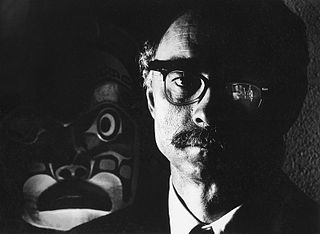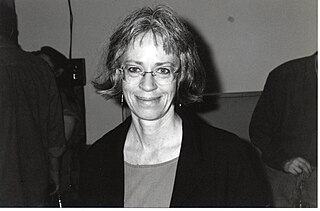Bill Bissett is a Canadian poet known for his unconventional style.
Margaret Avison, was a Canadian poet who twice won Canada's Governor General's Award and has also won its Griffin Poetry Prize. According to the Encyclopædia Britannica, "Her work has been praised for the beauty of its language and images."

Barrie Phillip Nichol, known as bpNichol, was a Canadian poet, writer, sound poet, editor, Creative Writing teacher at York University in Toronto and grOnk/Ganglia Press publisher. His body of work encompasses poetry, children's books, television scripts, novels, short fiction, computer texts, and sound poetry. His love of language and writing, evident in his many accomplishments, continues to be carried forward by many.
George Swede, is a Latvian Canadian psychologist, poet and children's writer who lives in Toronto, Ontario. He is a major figure in English-language haiku, known for his wry, poignant observations.

Gary Barwin is a Canadian poet, writer, composer, multimedia artist, performer and educator who lives in Hamilton, Ontario, Canada. He writes in a range of genres including poetry, fiction, visual poetry, music for live performers and computers, text and sound works, and writing for children and young adults. His music and writing have been presented in Canada, the US, Japan, and Europe.
Canadian poetry is poetry of or typical of Canada. The term encompasses poetry written in Canada or by Canadian people in the official languages of English and French, and an increasingly prominent body of work in both other European and Indigenous languages.
George Harry Bowering, is a prolific Canadian novelist, poet, historian, and biographer. He was the first Canadian Parliamentary Poet Laureate.
Frankland Wilmot Davey, FRSC is a Canadian poet and scholar.
Steven McCaffery is a Canadian poet and scholar who was a professor at York University. He currently holds the David Gray Chair at the University at Buffalo, The State University of New York. McCaffery was born in Sheffield, England and lived in the UK for most of his youth attending University of Hull.

James Crerar Reaney, was a Canadian poet, playwright, librettist, and professor, "whose works transform small-town Ontario life into the realm of dream and symbol." Reaney won Canada's highest literary award, the Governor General's Award, three times and received the Governor General's Awards for Poetry or Drama for both his poetry and his drama.
Derek Alexander Beaulieu is a Canadian poet, publisher and anthologist.
For the Australian former professional rugby league footballer, see Wayne Clifford.

Stephen Cain is a Canadian poet and academic.
Paul Dutton is a Canadian poet, novelist, essayist, and oral sound artist.
Gerry Gilbert was a Canadian poet famous in underground literature for his deliberate eschewing of all awards and competitions as he felt that personal ambition in art led to a lack of sincerity. He was known as Vancouver's bicycle poet.
grOnk, or GRoNK, was a Canadian literary magazine begun in 1967 by bpNichol and others (for example, David Aylward, David W. Harris, and Rah Smith. After the primary 8 series of 8 issues each were published, it was Nichol's efforts that maintained the irregular periodical, with guest editors including Nelson Ball, jwcurry, Steve McCaffery and R. Murray Schafer. An offshoot of Ganglia Press's Ganglia magazine, grOnk began with material gathered for Ganglia's sixth issue and became a monthly publication focusing on concrete poetry and "the language revolution" underway in Canada at the time, publishing a wide variety of "extralinear" writing from an international cast of contributors anchored in a context of parallel developments in Canadian literature. "GrOnk brought together British, Czech, American, Canadian, French and Austrian concrete and experimental practitioners..."
The Four Horsemen was a sound poetry group of Canadian poets composed of bpNichol, Rafael Barreto-Rivera, Paul Dutton and Steve McCaffery that also performed concrete poetry. The group was active from 1972 to 1988. They released 2 12-inch vinyl records of their collaborative sound poetry, 2 cassettes, as well as 3 print collections & the unique broadside Schedule For Another Place (1981). The Four Horsemen also appeared in Ron Mann's 1982 documentary film Poetry in Motion.

Judith Copithorne is a Canadian concrete and visual poet.
Nelson Ball was a Canadian poet, editor, publisher, and bookseller.




